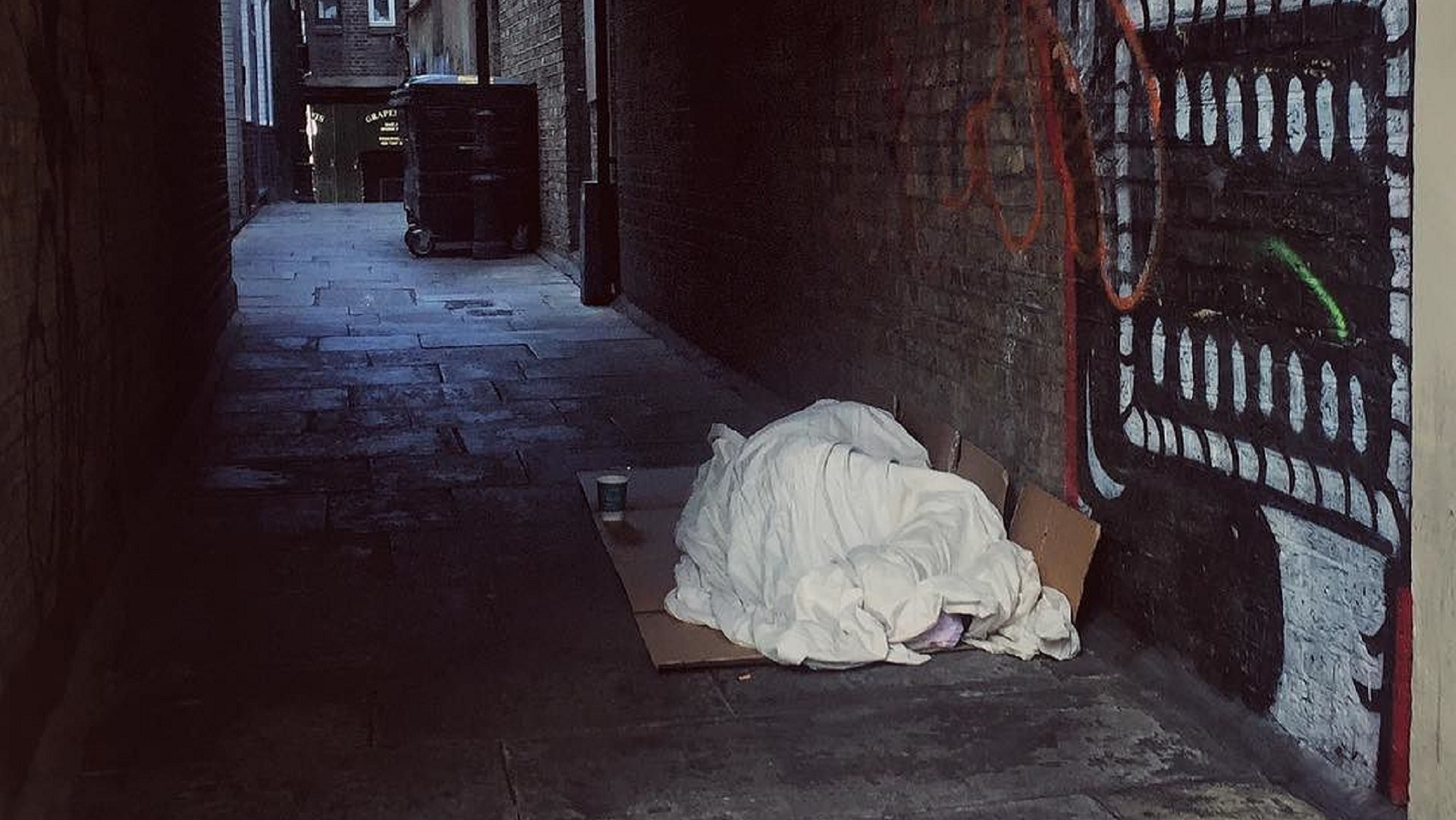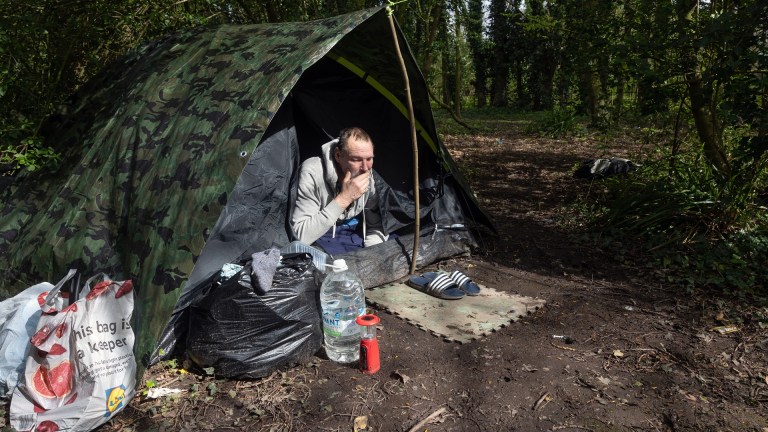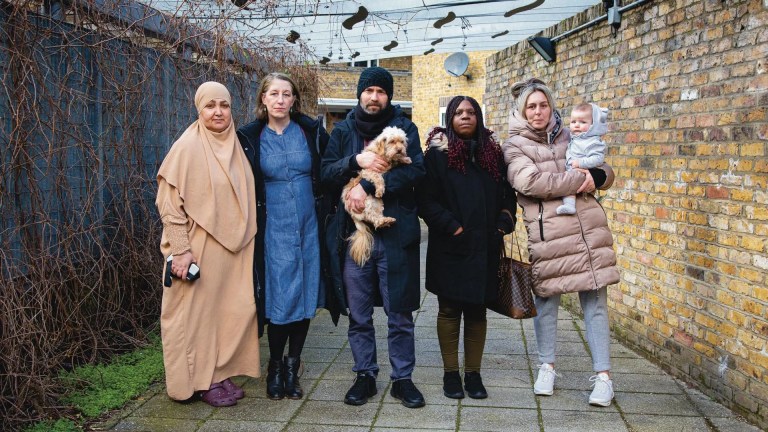The figures, sourced from freedom of information requests, local news stories and frontline worker reports and spanning all types of homelessness including rough sleeping and hidden homelessness, showed less than three per cent of deaths were related to Covid-19.
In total 693 deaths were verified in England and Wales in addition to 176 in Scotland and 107 in Northern Ireland.
“Every death of someone sleeping rough on our streets is a tragedy,” a Government spokesperson told The Big Issue.
“We agree a safe home for all is vital – that’s why we’re providing over £700 million this year and £750 million next year to tackle homelessness and rough sleeping, including delivering 3,300 long-term homes this year.”
London was the city with the most recorded deaths – accounting for 180 – while Glasgow reported 33. Thirty people died in Manchester and 29 people lost their life in Brighton and Hove.
“It’s truly heartbreaking that hundreds of people died without the dignity of a safe home,” Jon Sparkes, chief executive at charity Crisis, told The Big Issue. “Behind these statistics are people who had different lives, different characters and different stories. They shouldn’t be dying left out and forgotten.
Advertising helps fund Big Issue’s mission to end poverty
“What makes this worse is that so many of these deaths will have been avoidable. It’s absolutely crucial that the UK government urgently fulfils its previous commitment and expands the safeguarding system used to investigate the deaths of vulnerable adults to include anyone who has died while homeless.
“The last twelve months have shown what we can achieve when we all pull together.
“But let’s be clear, a hotel room is not a home.”
The Government must create a plan to “end homelessness altogether” and ensure people are protected from losing their homes as the UK leaves lockdown, Sparkes added.
Big Issue vendors from across the UK were counted in the figures, included New Milton’s Ed Sirani, who died last September aged 63, Maurice Richards, who died in Cardiff last April at the age of 60 and Plymouth seller Desmond Spiers, 34, who died last July .
The campaigners warned the true figure could be higher as Birmingham, the UK’s second largest city, and a third of London boroughs were not represented in the figures.
Advertising helps fund Big Issue’s mission to end poverty
MoH analysis of the figures warned a decade of austerity and cuts to welfare, mental health, addiction and housing services were behind a high proportion of deaths. They attributed 36 per cent deaths to drug and alcohol use and 15 per cent to suicide where a cause of death was confirmed.
The grassroots group is calling for the UK government to invest in council housing and support services. MoH warned the government’s £750 million investment into preventing rough sleeping represents just £109 million of new funds in 2021. That’s despite frontline homelessness services facing a £1bn funding shortfall before the pandemic, according to St Mungo’s analysis.
MOH has launched the Dying Homeless Project Coalition to call for changes to prevent deaths, including improving multi-agency working to ensure no one falls through the cracks and ensuring long-term funding is sufficient to end the loss of lives.
Campaigners are urging the general public to light candles on Tuesday to remember all those who died while homeless in 2020.
MoH co-founder Matt Turtle said: “The evidence has been building for years. Two years ago, the Government agreed to begin recording statistics for the first time but little is being done with the findings. We are asking, how are lessons being learned?
“We believe that far more needs to be done at a local and national level to change things. A national confidential Inquiry would ensure Government makes the long-term commitment needed.”
Advertising helps fund Big Issue’s mission to end poverty
Homeless deaths have only been officially counted in recent years. The latest official count from the Office for National Statistics estimated 778 people died without a secure home in England and Wales in 2019.
The ONS searches through death certificates to look for indications of homelessness to produce their figure, a method also used in Scotland where the first National Records of Scotland count revealed 195 people died in 2018.
But MoH’s Dying Homeless count – which was originally started in late 2017 as a Bureau of Investigative Journalism project – takes a different approach. The project relies on frontline workers and members of the public and local news reports to uncover deaths as well as issuing freedom of information requests to councils.
“The latest figures show that our ongoing Everyone In initiative had housed 33,000 people, supporting 23,000 into settled accommodation or with move on support,” the Government said, “and it will continue to protect thousands of lives.”










